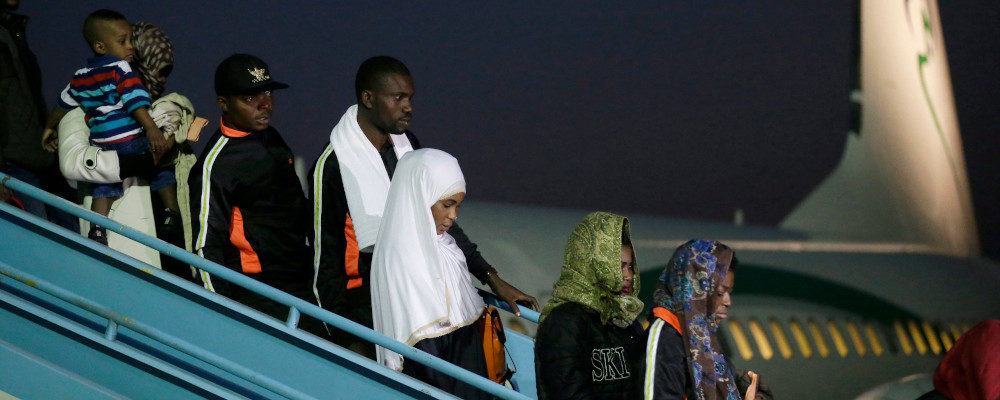To close out the year, we’ve asked our contributors and staff to make a prediction about 2022. You would think, at least since the early days of 2020, that we’d have learned our lesson about making predictions, but we couldn’t resist. Feel free to save these if you want to embarrass us with them later.
By Amal Attar-Guzman
There has been some talk from various foreign correspondents about the growing possibility of China potentially invading Taiwan, what would that look like and how will it impact the region.
Now, despite the growing fear that President Xi Jinping will invade and annex the island, the likelihood of that actually happening in the new year, in my view, is very low.
A recent dialogue with Professor Zhang Weiwei, despite what folks may think about it, shows one thing clear: President Xi Jinping is a strategic, meticulous, and patient person. Just because he and his supporters may clearly have an objective, that does not mean that they would make rash decisions to acquire it. Based on his background and personality, Chairman Xi Jinping does not seem to be someone who is frivolous in his decision-making to acquire long-term goals.
The ultimate goal of an invasion is for it to be successful in the long term, and there is little evidence an imminent invasion of Taiwan would be successful due to present conditions in Taiwan itself. A Brookings Institute report shows Taiwan’s democracy has been progressing and strongly maintained. A 2021 U.S. Department of State report highlights that civil and political rights and the rule of law are protected in the country, while human rights groups can operate without restrictions.
Economic conditions in Taiwan are also strong, ranking the 4th freest economy among 40 countries in the Asia-Pacific region, according to the 2021 Index of Economic Freedom. Taiwan’s economic growth even outpaced China for the first time in decades. Further, despite dealing with the COVID-19 outbreak and being so geographically near to China, Taiwan has been very successful in maintaining the outbreak with strong public health measures. The pandemic did not break down or much weaken the country’s state affairs or its economic growth.
Additionally, according to a Taipei Times poll, 90 percent of Taiwanese citizens self-identify as Taiwanese rather than Chinese, and about two-thirds stated that they would be willing to fight for Taiwan in case of war. Altogether, this means that any military intervention would be strongly opposed. While there is a small minority that identifies as Chinese and pro-China organizations have been active, they have yet to have a strong influential presence, with only 1.5 percent supporting unification with China, according to a National Chengehi University survey.
Given present conditions, it’s evident that the grounds for a successful invasion are not fertile enough as there aren’t any clear or major political, economic, or social breakdowns now or in the near future. If China wishes to invade Taiwan, it would take a lot more strategic planning and patience for the wheels of fortune to change.
Now, that isn’t to say that China will not flex its muscles. It has recently done so by sending over thirty-eight warplanes close to Taiwan. But it is important to keep in mind that none of these warplanes actually entered into Taiwan’s airspace, thus not breaching its sovereignty. What China did that day did not signify an invasion in the near future. Instead, it was testing the island and its allies—particularly its American ones, demonstrating its military power as the country celebrated its 72nd anniversary of the People’s Republic of China founding.
The number of climate migrants will rise in the new year
This year, the world has seen many catastrophes due to climate change: a snow blizzard in Spain, a cyclone in Fiji, a sandstorm in China, and wildfires in Greece and Turkey. We’ve even seen it in our own backyard here in Canada: with this past summer’s wildfires in Northern Ontario to a heat dome and recent heavy rains and flooding in British Columbia.
It is clear that the international community is taking great notice of its negative impacts, assembling for COP26 back in November and concluding the conference with a pledge to achieve net-zero by mid-century.
Despite COP26 objectives and goals, it is clear that certain impacts of climate change have already taken shape. One major negative impact is the eventual rise of climate migrants. From these catastrophes, displacement occurs due to the loss of habitable environments, destruction of homes, and the rise of food insecurity. Further, the countries that are most affected by climate displacement are developing nations, and, as climate change worsens, the World Bank estimates it could trigger 216 million people to migrate within their own countries by 2050.
While achieving certain climate change objectives may lessen the impact, it is already set in motion nonetheless. It is only a matter of time before we see mass migrations go across borders. It already has been happening at the U.S.-Mexico border with the rise of Central American migrants.
As such, it shouldn’t be a surprise, sadly, to see the rise of climate migrants being reported in the new year. Additionally, we will have to have the difficult discussion of whether or not climate migrants legally qualify as refugees.




